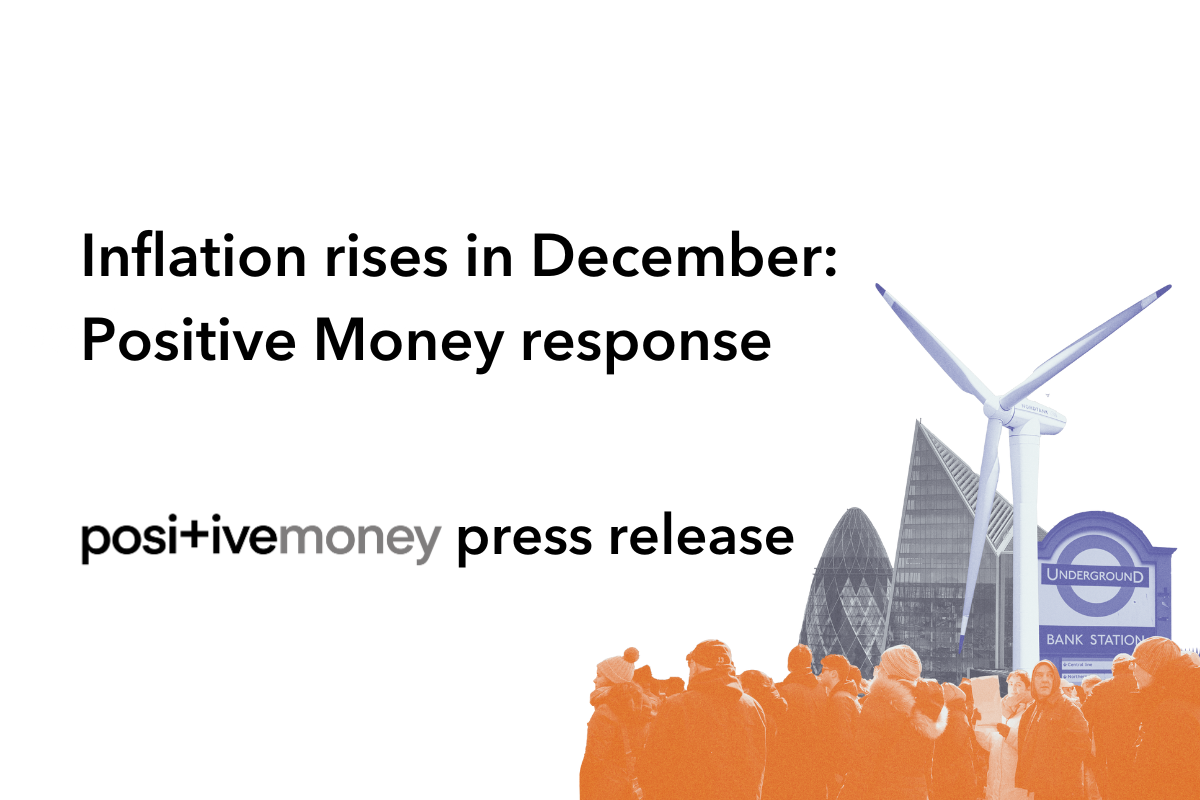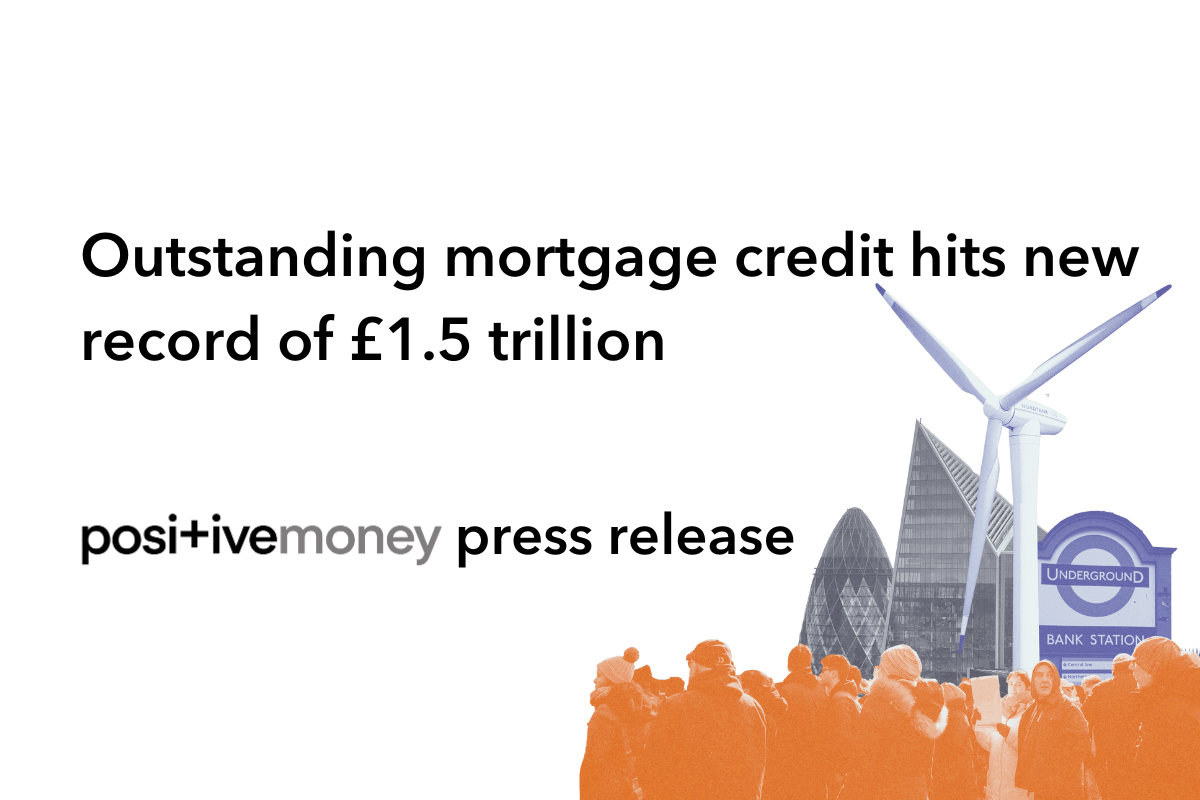
Monetary policy and inequalityUK
21 January 2026
Concerns raised over share of lending going to unproductive assets
London, 18 August 2025 - The financial sector is directing too much credit to the purchasing of existing assets rather than to the creation of new ones, according to new analysis from think tank Positive Money.
Using the latest bank lending data provided by the Bank of England, the analysis finds that outstanding lending held in mortgages reached £1.5 trillion for the first time in June 2025 after growing 2.8% year-on-year.
The stock of loans held in mortgages dwarfs other industries, standing at over three times the amount held by the non-financial sector, and six times the amount held by productive firms - defined as corporates operating outside of financial and business services, and the buying and selling of existing property.
With a growing number of non-financial firms engaging more in financial and speculative activities, a metric not captured by the Bank of England’s sectoral data, Positive Money warns the scale of lending going to speculative rather than productive activities must actually be even higher than reflected in the data.
Holding £1.5 trillion of outstanding credit, mortgage lending now makes up 54% of all lending by commercial banks. The financial sector makes up 23.6% of total lending, holding £655 billion in outstanding credit as of June 2025.
Credit held by the productive sector, however, has fallen from 11.6% in July 2009 to 9.6% of total lending in June 2025. Comparatively, the finance, insurance, and real estate (FIRE) industries hold almost three times the stock of loans that the productive sectors of the economy do, at £708 billion and £249 billion respectively.
The analysis comes shortly after the UK Parliament’s Business and Trade Select Committee opened a new inquiry into, ‘Financing the Real Economy’, which seeks to explore the causes of the UK’s persistent underinvestment and how capital formation can be increased.
By focusing on speculative investing, Positive Money argues UK banks are holding back productivity and exacerbating inequality.
Alec Haglund, Senior Researcher at Positive Money and author of the research, said:
“When speculation on existing assets is prioritised over investments in productive activities, the result is an increase in inequality, because it inflates the wealth of asset owners at the expense of those who do not own assets.
"If banks continue to shun productive industries while pumping money into speculative activities, the inevitable result will be an increase in asset prices without an equivalent increase in economic output, further divorcing the financial sector from the real economy.
“Not only does this undermine the government’s growth mission by contributing to the UK’s low rates of investment, it drives further wealth inequality and heightens the risk of another financial crisis - because we all know what happens when asset bubbles burst.”
Notes:
The full briefing can be accessed here: https://www.datocms-assets.com/132494/1755082031-aug-2025-bank-lending-research-briefing-docx.pdf
The Business and Trade Committee’s Call for Evidence on productive finance is open for submissions until the 12th September: https://committees.parliament.uk/call-for-evidence/3739/
ENDS
